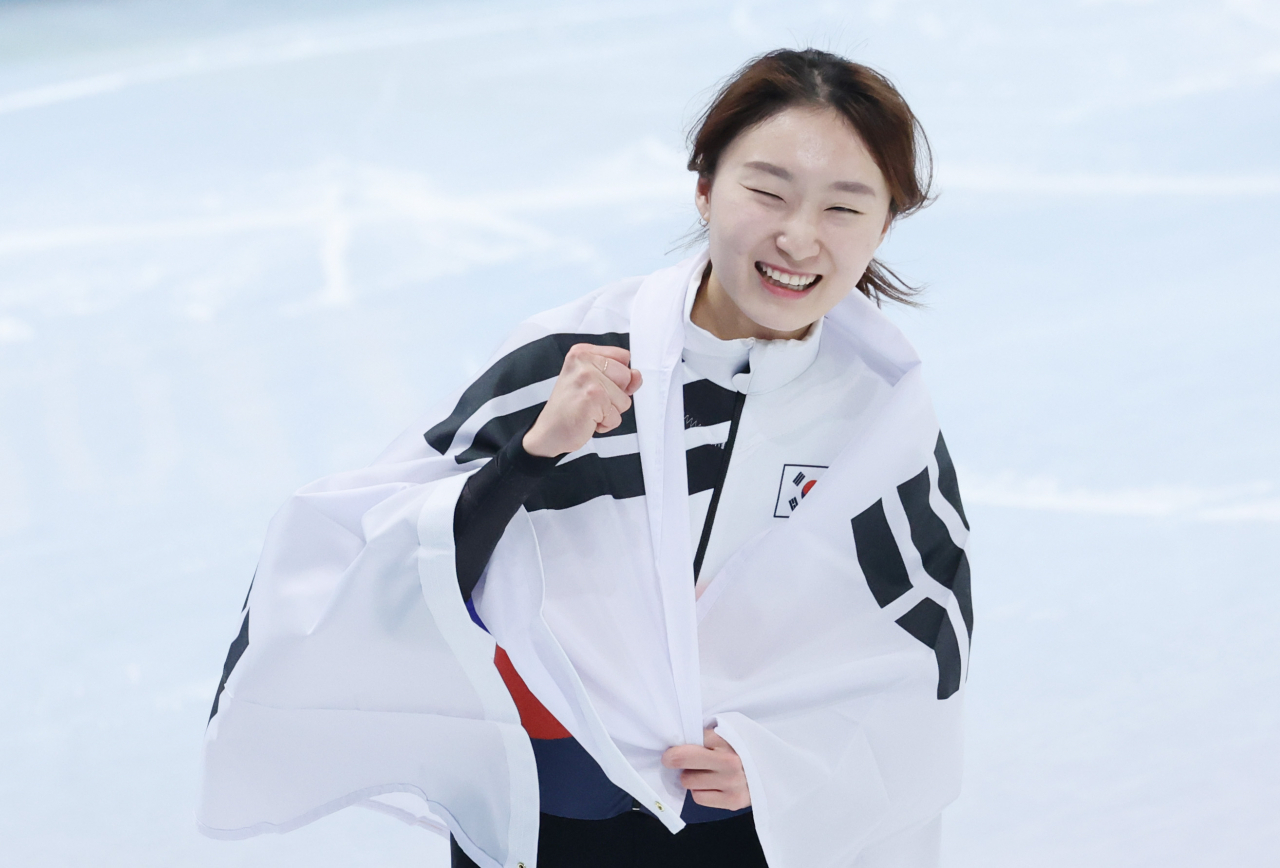
BEIJING -- After helping South Korea to the silver medal in the women's 3,000m relay in short track speed skating at Beijing 2022 last Friday, Choi Min-jeong spoke about how she and her teammates "did the best we could under the circumstances."
She didn't elaborate, but for those who have been following short track or the Beijing Winter Olympics, she didn't have to.
And despite those challenges, South Korea still led all countries with five medals in short track here, with two golds and three silvers. The Netherlands, China, Canada and Italy all had four total medals apiece.
Choi, who had won silver in the 1,000m prior to the relay medal, capped off her second Olympic appearance with gold in the 1,500m on Wednesday. Hwang Dae-heon was the other gold medalist for South Korea, with his title in the 1,500m. Also on Wednesday, Hwang and his teammates combined for silver in the men's 5,000m relay.
And it's fair to wonder just how many more medals South Korea could have won, or how some of the colors might have been different, without those aforementioned challenges.
For one, Choi and her relay team were missing two of the top three finishers from the Olympic trials last year.
Shim Suk-hee, a two-time Olympic relay champion who won the trials, was banned from competing here because of her off-ice trouble. She was penalized for making disparaging comments about her teammates during PyeongChang 2018 in text exchanges with a coach, and the targets of Shim's derision included two members of this year's team, Choi and Kim A-lang.
In one particular text thread, Shim also hinted at trying to intentionally trip up Choi in the women's 1,000m race out of spite. The two did get tangled up in the 1,000m final, and neither won a medal. Shim was ultimately cleared of those suspicions, but the bridge between Shim and Choi was burned beyond repair. It would not have been feasible to keep the two on the same relay team even if Shim hadn't been suspended by the Korea Skating Union (KSU)
One other skater missing in Beijing was Kim Ji-yoo, who finished third in the Olympic trials. She suffered a broken ankle in November during an International Skating Union World Cup race and went through a grueling rehab to get ready for Beijing.
The KSU left Kim off the team in late January, despite the skater's assertion she had fully recovered. Kim later accused the KSU of lacking transparency in its team selection process. Even a slightly compromised Kim would have been a strong asset in the relay.
That's already plenty of off-ice drama to deal with for the national team, but more awaited the skaters in Beijing.
Things went awry from the very first day of competition. South Korea entered the inaugural mixed team relay on Feb. 5, hoping to grab the very first Olympic gold in the brand new event. Instead, Park Jang-hyuk, one of two male skaters in action, fell without contact with three laps to go in the quarterfinals, sealing South Korea's elimination in the first phase.
Two days later, more debacles took place on the ice. Choi slipped and fell during the 500m quarterfinals, also without any contact. It was another case of South Korean skaters struggling to contend with tricky ice conditions at Capital Indoor Stadium, though they were far from alone in that regard.
And it wasn't even the biggest incident for South Korea on that day.
Hwang Dae-heon and Lee June-seo were both disqualified in their respective 1,000m semifinal heats on refereeing decisions that angered many South Korean short track fans and officials. That those calls ended up benefiting Chinese skaters added insult to injury for South Korea. The country's top sports body, the Korean Sport & Olympic Committee, plans to take this matter to the Court of Arbitration for Sport, the top global sports tribunal.
It took a gold medal by Hwang in the men's 1,500m on Feb. 9 to bring the spotlight back to the ice. Two days later, Choi Min-jeong grabbed silver in the women's 1,000m.
Hwang and Choi were central figures on the final day of short track Wednesday. Hwang and the men's 5,000m relay team skated to silver. Then in the very last short track race in Beijing, Choi defended her 1,500 gold medal over her two main rivals, Arianna Fontana of Italy and Suzanne Schulting of the Netherlands.
Choi said Hwang's gold medal, which was also the very first gold for the entire Korean delegation, had been the turning point. She was also proud of the way this year's short track squad was able to keep the country's legacy in the sport alive.
South Korea now has 26 gold medals and 53 medals in Olympic short track competitions, more than any country.
"We felt this wouldn't be an easy Olympics, and we had some tough results early on," Choi said Wednesday. "Hwang Dae-heon's gold medal was the turning point. We kept on battling, and we're proud of what we've accomplished here. Korea is still synonymous with short track speed skating."
It will take much the same effort, perhaps more, to maintain that throne at future Winter Olympics, considering the ever-improving quality of competition.
Choi took note a new Olympic record was set in every women's race in Beijing: 500m, 1,000m, 1,500m and 3,000m relay.
"Compared to four years ago, skaters are just so much faster," she said. "Everyone on the women's side has improved. We'll have to keep an eye on the speed and how we're going to handle faster opponents." (Yonhap)





